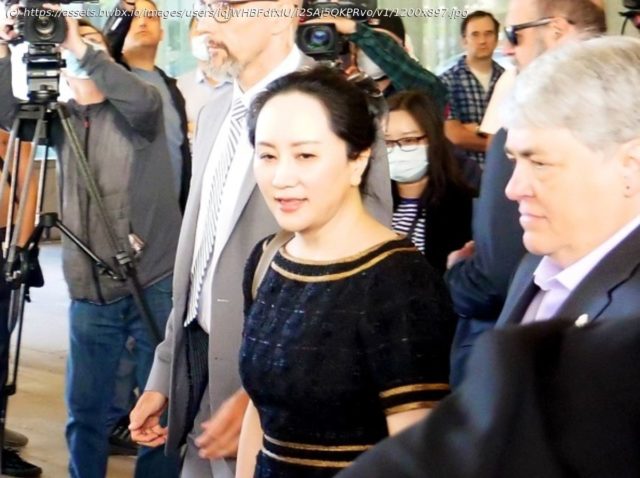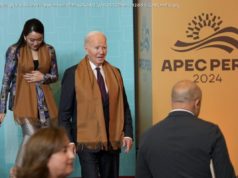The U.S. dominates the international system. Beijing’s best hope is for Washington to alienate its allies.
Chips, Chats, and Swift. They refer to the machinery of international finance that gives America extraordinary leverage. Like so much else, they’re also weapons in the coming cold war between China and the U. S. The People’s Republic resents Washington’s dominance over global payments and wants its own alternative. Some of these acronyms have surfaced in a court case in Vancouver, 1 where Huawei Technologies Co.’s finance chief is battling extradition to the U. S. on bank fraud charges brought by the Department of Justice. Meng Wanzhou’s case is instructive. The Huawei founder’s daughter is accused of deceiving banks, including HSBC Holdings Plc, into clearing millions of dollars in violation of U. S. sanctions against Iran. There’s plenty of finger-pointing, though the one crucial dispute that keeps coming up involves $100 million in transactions between 2010 and 2014 that HSBC processed for Skycom, a Hong Kong company that sold equipment in Iran. Huawei calls Skycom a “business partner” and the Justice Department says it was an unofficial subsidiary. Doing business with Iran in itself doesn’t violate sanctions laws, as long as such activity doesn’t involve U. S. entities, persons or equipment. But HSBC routed the money through the Clearing House Interbank Payments System, or Chips, meaning the money was technically on American soil. Chips handles 95% of all dollar transactions, or $1.6 trillion a day. After moving through an elaborate correspondent banking network, most international transfers gravitate to this New York private club, whose 43 members settle the payments using a pre-funded account at the Federal Reserve. They all maintain U. S offices, and are subject to U. S. law. Huawei argues that since HSBC knew of its Skycom links, the bank should have cleared the funds through the Clearing House Automated Transfer System, or Chats, an offshore dollar clearing system in Hong Kong. The reality, though, is more complex. When money crosses borders, it’s accompanied by instructions transmitted by the Brussels-based Society for Worldwide Interbank Financial Telecommunication, or Swift.






